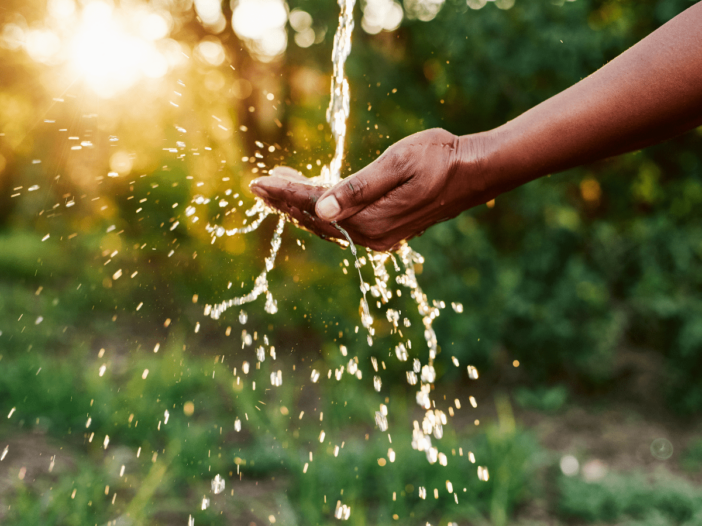
Water Conservation – How to Save Water this Summer
Wondering how to save water this summer? We’ve got you covered with these ten easy water saving tips! As temperatures rise, population increases, and industry and agriculture expand across the province, water conservation is becoming more and more important, especially in the summer. Check out our water conservation guide below for simple ways to save water, both inside and outside your home.
Why Conserve Water?
Summer is peak season for water usage in British Columbia, when temperatures are high, rainfall is low, and water evaporates quickly. Whether you’re using extra water to cool off, stay hydrated, or keep your garden alive, it adds up quickly.
Not only will saving water lower your utility bill, it will go a long way to protecting the planet and easing pressure on the province’s water supply. Reducing water consumption decreases the amount of water that needs treatment, helping to lower sewage and infrastructure costs, and reducing greenhouse gas emissions associated with water treatment and distribution.
Making small changes to some of your daily habits can help prevent water pollution in rivers, lakes, and watersheds, and protect against drought. Follow the guide below for ten simple tips on how to save water this summer, and live in a way that’s easy on your wallet and the earth!
How to Save Water Inside your Home
The most effective way to save water is to upgrade your fixtures, investing in water-efficient shower heads, toilets, faucets, and appliances; however, some practical and powerful water saving methods can be achieved at very little cost. Here are five simple things you can do inside your home to conserve water in the hot summer months.
- Shorten your Showers
Reducing your shower time can make a huge difference in how much water you use. You can also install water efficient shower heads, shower timers, or turn off the water while you’re soaping up.
- Be Efficient with Laundry
Save water by doing laundry only when you have a full load, and avoid the permanent-press setting, which uses extra water. If you’re losing a lot of water to laundry, consider investing in a high efficiency washing machine. It should easily pay for itself in a lifetime of water and energy savings.
- Check for Leaks
Check your faucets, pipes, and toilets for leaks. This simple step can save up to 100 litres of water per day. To check faucets, ensure the entire sink is dry and leave it for about an hour. If any wetness appears, you’ve found a leak. Toilet leaks can be revealed through placing a small amount of food coloring in the toilet tank. If the color shows up in the bowl, there is a leak. Take care of leaks immediately if you can, most replacement parts are inexpensive and easy to install.
- Avoid Running Extra Water
If you’re washing dishes by hand, fill the sink basin instead of rinsing with running water, and turn the faucet off while you’re brushing your teeth.
- Insulate your Pipes
Insulating your water pipes is an easy and inexpensive way to avoid running extra water. You will get hot water faster and avoid wasting water while it heats up. If you’re running the tap and waiting for hot water, you can place a bucket below and save the water for other tasks, like watering plants.
Tips for Water Conservation Outside your Home
Follow these simple suggestions to save on water usage outside your home.
- Water your Lawn or Garden in the Evening or Early in the Day
Early and late watering reduces water loss due to evaporation on hot summer days. If it suits your needs, a deep irrigation system is more effective than sprinklers because it places targeted amounts of water exactly where you need it.
- Get a Rain Barrel or Invest in Green Infrastructure
Place a rain barrel in your yard or beneath your gutter to collect excess water when it rains, and reuse it to nourish your lawn or garden. Investing in other green infrastructure like a green roof or rain garden will also help to absorb water more efficiently and reduce pollution.
- Use a Soil Moisture Meter to Gauge When to Water your Garden
Avoid excess water use with a soil moisture meter. This device will tell you when the soil is dry, so you can only water when your plants actually need it.
- Add Organic Matter to Your Garden and Place a Layer of Mulch Around Your Plants
When you’re preparing your soil for planting in the spring, add compost or organic matter to the soil to increase its absorption and water retention. Placing mulch around your plants will also slow the evaporation rate and discourage weed growth.
- Check for Leaks in Your Pipes, Hoses, and Faucets
Check your hoses and outdoor faucets regularly for leaks, and use washers and spigots at connections to avoid wasting water through your outdoor watering system.
We hope these simple tips will help you conserve your water supply in the hot summer months. Help us spread the word and share the wealth of information about how to save water and why it’s important. If you have any more questions on how to get savvy and save water this summer, for your home and for the planet, call the experts at Ashton – we’re here to help!

